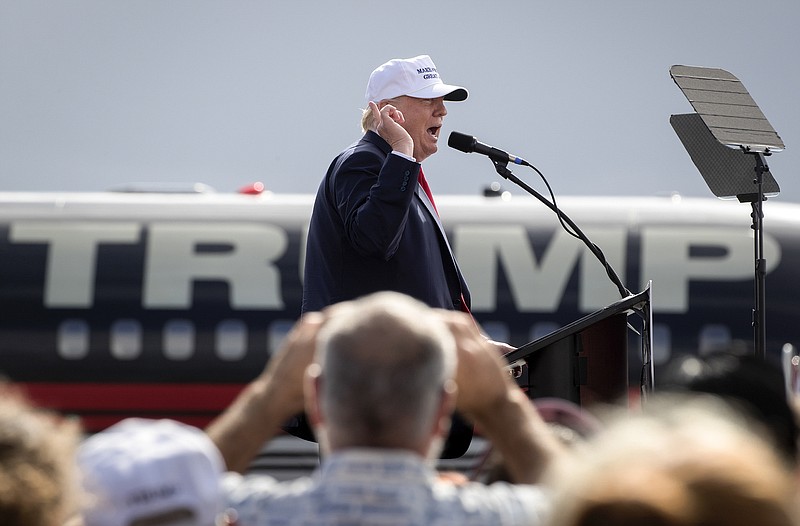In his effort to give his presidential campaign the strength it needs, Donald Trump told The Associated Press recently that Americans should look at his corporate record for evidence of how well he'd run the country. His problem is that many Republican corporate executives have already concluded that his record disqualifies him for the presidency.
This is not unexpected, given the familiar argument that corporate presidential experience presumably qualifies one to be president of the country. Nothing could be further from the truth, as even a cursory review of the respective responsibilities proves.
There is also a historical rebuttal to Trump's claim. In 2000, when Trump was idly considering a run for the presidency, William F. Buckley Jr., founder of the conservative - and anti-Trump - magazine National Review, was unimpressed. He took down Trump in an essay (published by Cigar Aficionado) that is pertinent even today. Buckley opposed demagoguery. But more to the point, he urged voters to "look for the narcissist." He continued:
"The most obvious target in today's lineup is, of course, Donald Trump. When he looks at a glass, he is mesmerized by its reflection. But the demagogue has to say something. So what does Trump say? That he is [the] successful businessman America needs in the Oval Office.
"There is some plausibility in this, though not much. The greatest deeds of American Presidents - midwifing the new republic; freeing the slaves; harnessing the energies and vision needed to win the Cold War - had little to do with a bottom line."
It is important, he concluded, for voters to "exercise a veto when it becomes more necessary to discourage cynical demagogy than to advance free health for the kids. That can come later, in another venue; the resistance to a corrupting demagogy should take first priority."
With the election only days away, Buckley's take on Trump as demagogue has proven to be not just prescient. It is being validated daily as his insecurities lure him further into absurd explanations for his campaign's apparent deterioration.
The election is "rigged." Polls are "phony." The potential for massive voter fraud looms, especially in certain (read: minority) neighborhoods. The media coverage of his campaign? That just shows they are complicit in the "rigging." Why else are they asking all those questions? (That just shows that Trump is unfamiliar with a journalistic axiom: "If your mother says she loves you, check it out.")
In the campaign's waning days, Trump's bile has washed up against his presumptive fellow Republicans, especially House Speaker Paul Ryan.
It's unclear whether a GOP civil war will break out if Trump loses. One reason it may not is also historical.
Wise leaders of a defeated party use lessons learned from a loss as a guide to hoped-for successes in the future. Republicans captured the White House in 1968 just four years after Barry Goldwater's landslide loss. And although Democrats suffered a humiliating loss to Richard Nixon 1972, they prevailed with Jimmy Carter's 1976 election after Nixon's Watergate-related resignation.
But that was then. Republicans now believe recovery from a Trump defeat may be more difficult than expected. Voters are angry over their circumstances and worry about their future. Trump has stoked that anger by blaming the "corrupt" system while offering few if any proposals for how he will "fix" things.
How will the next Congress respond to those who fear the system has abandoned them? It is immaterial which party controls Congress if all Americans get for their vote is more years of legislative gridlock. There is a rich history of contentiousness in American politics. But the rarity of congressional compromise recently has led to legislative calcification - and Americans' disdain.
Michael Loftin is former editorial page editor of The Chattanooga Times.
